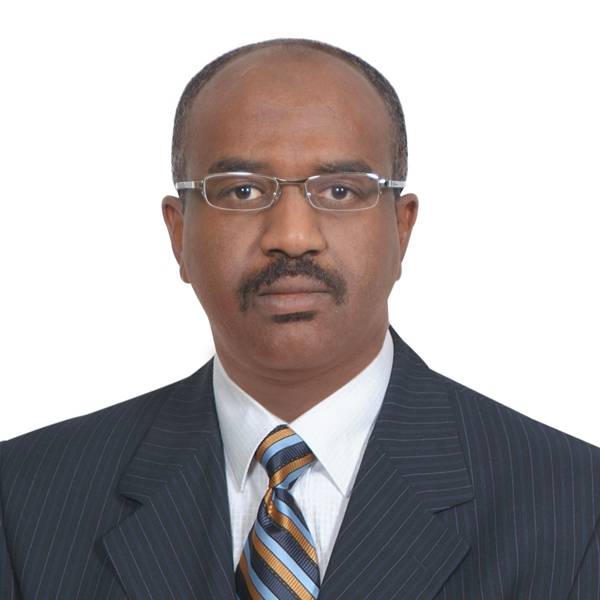Sudan has been at civil war for ten months, since the bloody conflict erupted last April 2023, between the Sudanese Army and the Rapid Support Forces. However, both fighting parties have been getting into a brutal war in all forms, from destroying the State’s fragile infrastructure, gross human rights violations to include looting private properties, and so on. Recently, the ongoing civil war has turned into a tribal ethnical one, as a result of popular mobilisation campaigns launched on a tribal sectarian basis. In the meantime, diplomatic and political efforts to ward off the spiralling war fires across the region, many initiatives and talks engagements are being conducted, without avail.
The required peace plan is not likely to be carried out successfully. For now, there are plenty of negotiations rounds, both regionally and internationally, sponsored by different States and organisations, such as Saudi-American Initiative in Jeddah city and Inter-governmental Authority on Development, IGAD, and the African Union. Each involves main players and meditators. But the official position of the Sudan government is the current military leadership headed by General Abdel Fatah Al-Burhan and his rival, the leader of Rapid Support Forces, General Mohamed Hamadan Dagalo (Hemedti). Both have brought no changes in the course of peaceful means in making the suggested roadmap meaningful. Each side has its observations which, in terms of military context, lead to military solutions being off the negotiation tables. Given this fact, the reality on the ground has deteriorated at humanitarian levels. In addition to the military developments, the SAF forces have acquired new military gains on the ground.
READ: Sudan warring parties hold first high-level talks in Bahrain
The international expected pressures are not likely to be imposed on the warring factions. Many steps diplomatically to have a durable peace have failed due to the controversial agenda which, in turn, has complicated the stalled negotiations process—everyday, the pace to peace is distanced.
The escalating conformation between the two parties is supposed to undermine the fragile peace process conducted at the regional level. If the peace effort continues to fluctuate between the implicit agenda and foreign-States’ interests, the war would be extended to include all of the country, at social, military and political levels.
Since the political process pursuit has blatantly failed to restore stability, then the only way to be believed by observers is to pave the way for a profuse international intervention. This means that the Security Council of the UN should have taken a further step in accordance with its necessary measurements to mitigate Sudan’s uncertain future as a State and people. Having economic sanctions carried out recently by the United States against persons, commercial entities and companies would have little impact. Conventionally, such a weapon has been experienced for decades by US foreign policy toward Sudan; it had minor results, without reaching their goals to refrain the former regime from exercising repugnant policies against its people.
In the case of Sudan there must be more strong actions taken internationally, without which any other political intervention would only be mere political lip service. The needed action could be a forceful means to tackle the ongoing spiralling conflict. Such means are recognised by the international organs and being used in many different parts in the world—Sudan would not be an exception. This takes into account Sudan’s previous experience in dealing with peace-keeping forces’ operations, deployed with the UN’s full mandate in the restive region of Darfur and other parts of the country.
There is an immediate challenge for the warring parties, including the para-militia back the government Army and SAF alike is to seek a peace deal amidst the escalating crisis. Civilians have paid the highest price, resulting in so many disastrous humanitarian conditions. Both sides need to foster their utmost effort to pave the way to ending their useless conflict. Obviously, all presented options of solutions have failed, or been revoked by conflict involving all parties, while the war still keeps going on. No bilateral or collective peace initiative seemed to be an active success to gather the plethora of Sudan’s political bodies to unite their efforts in making peace as the last reliable option. No other option could have transformed the paralyzed political reality rather than intended peaceful means.
Calling upon the international community to intervene in the Sudan peace process should not be understood by ruling policymakers as an external intervention in homeland affairs that could cripple national sovereignty. In the long term, the peace option is – and will be – an ultimate goal to be clarified by all interested components. Any peace process should be monitored by international observers otherwise it would inevitably collapse.
OPINION: Will everyone fight each other in Sudan, or will there be a ceasefire?
The views expressed in this article belong to the author and do not necessarily reflect the editorial policy of Middle East Monitor.

![A view of streets as clashes continue between the Sudanese Armed Forces and the paramilitary Rapid Support Forces (RSF) despite the agreement on cease fire in Khartoum, Sudan on April 30, 2023 [Ömer Erdem/Anadolu Agency]](https://i0.wp.com/www.middleeastmonitor.com/wp-content/uploads/2023/05/AA-20230430-31006668-31006654-CLASHES_CONTINUE_DESPITE_CEASE_FIRE_IN_SUDAN-scaled-e1683216539633.jpg?fit=920%2C612&ssl=1)







